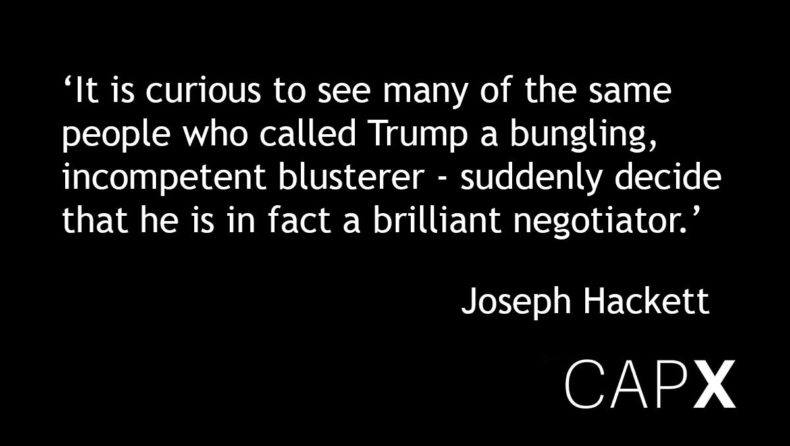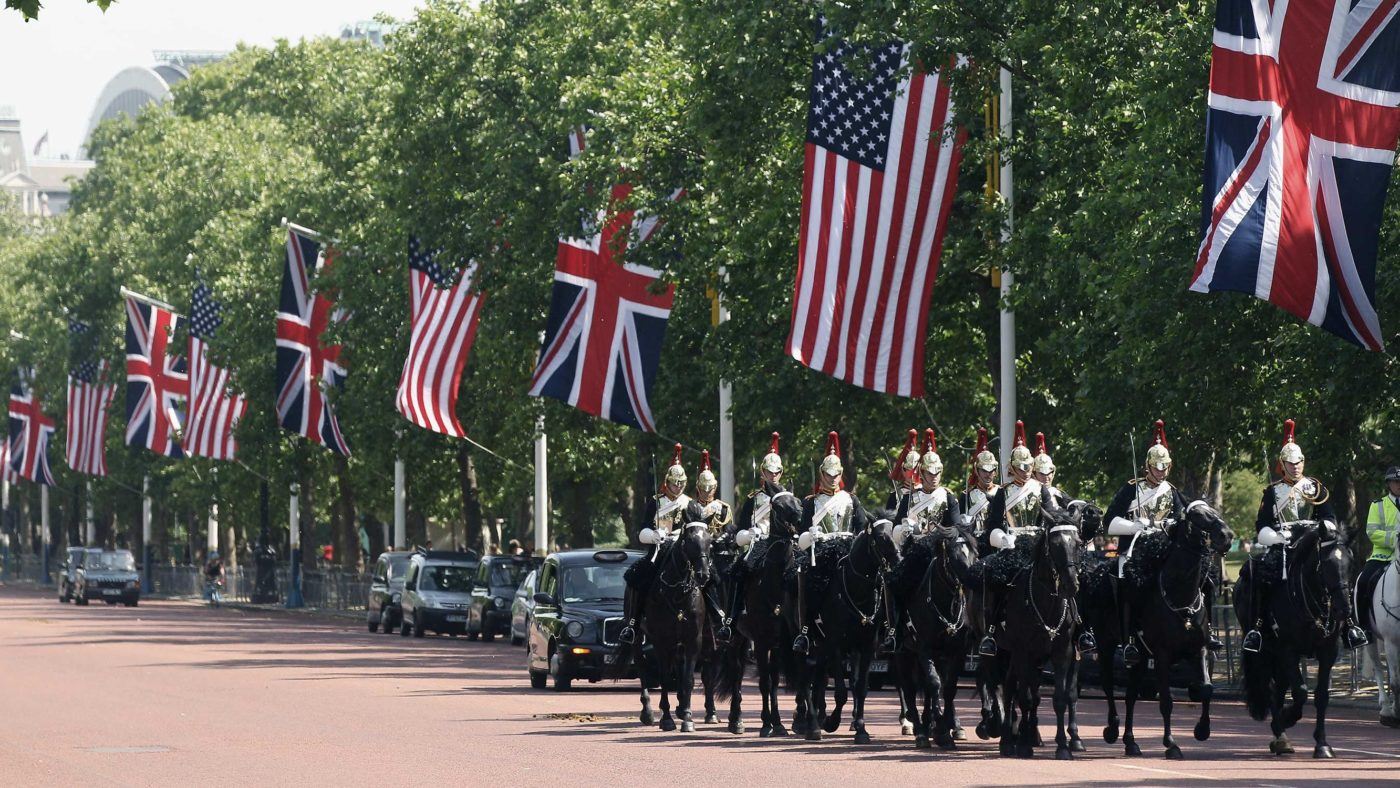As the Article 50 Bill makes its way through the House of Commons this week, the Government has pencilled in March 9th as the date when Brexit negotiations are due to start. Across the Atlantic, a not entirely dissimilar process began last month, when the Prime Minister, Theresa May, and US President Donald Trump met and discussed starting preliminary talks towards a post-Brexit UK-USA free trade agreement.
The news from Washington sent die-hard Remainers scrabbling around for reasons not to be cheerful – at least until the chaotic “travel ban” gave them a convenient excuse to oppose all things Trump-related.
Contrary to their concerns, however – and those put forward by Garvan Walshe on CapX yesterday – the news is unambiguously good, not least because it strengthens the Government’s hand in its negotiations with Brussels.
Some ex-Remainers took the same line as various EU leaders, insisting Trump’s offer of a trade deal was worthless – at least for now – since, they say, Britain cannot engage in serious trade negotiations until after Brexit.
This is wrong. We may not be able to put into effect any free trade agreements while we are still part of the EU and its Customs Union. However, there is no reason why we should not be able to negotiate deals which will come into effect almost immediately after Brexit, especially now the Brexit Secretary, David Davis, has clarified we are “definitely leaving” the Customs Union.
Further fears were raised about the possibility of the Prime Minister incurring the wrath of the EU by pressing ahead with formal negotiations with Washington. But this should not necessarily be considered a bad thing. Naturally, May starting formal talks with Trump would upset the EU’s negotiators, because it would significantly bolster the UK’s Brexit negotiating position.
If the Government seriously expects to be able to implement a comprehensive free trade agreement with the USA almost immediately after Brexit, then the threat to walk away from negotiations with Brussels, rather than submit to a bad deal, becomes much more substantial.
While no Brexit deal and a reversion to WTO rules would hurt both the British and the EU economies, increased trade with the USA following a free trade agreement would at least mitigate the effects.
It almost certainly would not offset all the loss of trade with the EU, given how much more we trade with the EU than the USA – but what it would do is make WTO rules a more tolerable, viable option.
This would help level the playing field in Brexit negotiations. Without this offer from Trump, EU leaders might have been encouraged to hold their nerve for longer.
With a much larger proportion of Britain’s trade being with the EU than vice versa, they might have assumed Britain would be far less capable of tolerating WTO rules than the EU, and so would sooner fold than actually walk away.
But the mitigating factor of a UK-USA deal would allow May to claim Britain could survive under WTO rules at least as well as the EU.

Meanwhile, other Remainers, including Nick Clegg and Emily Thornberry, went protectionist, taking a break from complaining about Britain allegedly “turning its back” on globalisation.
Clegg claimed a UK-USA deal would lead to Britons “having to eat” what he called “chlorine-washed American chicken flesh”, while Thornberry lamented how “small player” Britain would be “swallowed up” in negotiations. Both suggestions are, of course, absurd.
The same principle works for Trump as it does for Brussels. As long as Britain can expect to maintain free trade with the EU after Brexit, it is not so desperate for a deal with the USA that it simply cannot walk away and would have to accept a bad deal dictated by Washington. Just as we should be prepared to walk away from Brussels, we should also be prepared to walk away from Trump.
There is clearly a wilful effort on the part of many Remainers to contort every possible positive into a negative. It is curious, for instance, to see many of the same people who called Trump a bungling, incompetent blusterer suddenly decide that he is in fact a brilliant negotiator, who will put May to the sword in trade negotiations, and ram ‘chlorinated chicken’ down the throats of 65 million Britons.
The Government must not run scared of either Trump or Brussels. By pursuing trade negotiations with the US and the EU simultaneously, and taking an assertive stance in both sets of talks, Theresa May will be able to play both sides of the Atlantic off against each other and get the best deal for Britain in both cases.
This, of course, relies on Parliament not amending the Article 50 Bill this week to restrict the Government and force it to take a more passive approach. If we want to get Britain out on the best possible terms, MPs must not tie one hand behind the Government’s back. Theresa May and the Government must be allowed to use both hands to secure the best possible deal for post-Brexit Britain.


